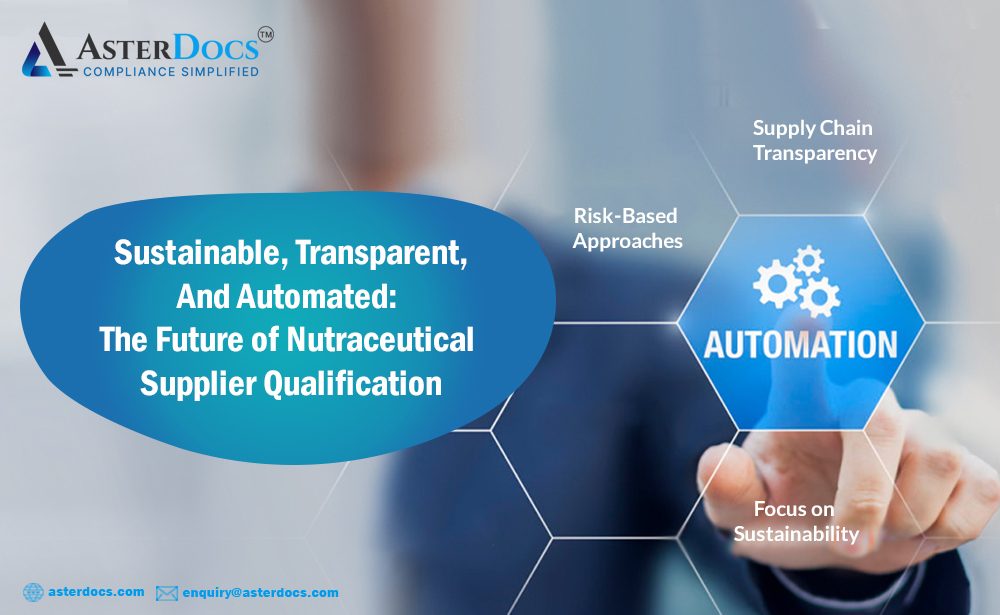The nutraceutical industry is constantly evolving, and supplier qualification is critical to ensuring product quality and safety. There have been significant advancements in this field in recent years, and the future of nutraceutical supplier qualification looks promising.
Here are some trends and innovations to watch out for:
1.Increased Emphasis on Supply Chain Transparency
There has been a growing demand for transparency in the supply chain in recent years. Consumers want to know where their products come from and how they are made. As a result, nutraceutical companies are emphasizing supply chain transparency more, and supplier qualification plays a crucial role in achieving this.
Many nutraceutical companies are implementing blockchain technology to track their supply chains to meet this demand. This technology allows for increased transparency, traceability, and accountability, which can help to prevent fraud and ensure product safety.
2. Greater Use of Automation
Automation is becoming increasingly prevalent in the nutraceutical industry, and supplier qualifications are no exception. Many companies are turning to automation to streamline their processes and reduce the risk of errors.
For example, automated systems can screen suppliers, verify their credentials, and ensure compliance with regulations. This can help reduce the time and resources required for supplier qualification while improving accuracy and consistency.
3. Adoption of Risk-Based Approaches
Traditional supplier qualification processes have focused on compliance with regulations and industry standards. However, this approach may not always be effective at identifying and mitigating risks.
Many nutraceutical companies are adopting risk-based approaches to supplier qualification to address this. These approaches involve identifying and assessing potential risks at each stage of the supply chain and implementing measures to mitigate these risks.
4. Increased Focus on Sustainability
Sustainability is a growing concern for consumers, and nutraceutical companies are responding by emphasizing sustainable practices more. This includes supplier qualification, as consumers often prefer sustainable suppliers.
Nutraceutical companies assess suppliers’ environmental practices, social responsibility, and ethical sourcing to qualify sustainable suppliers. This can help to ensure that products are produced responsibly and sustainably, which is increasingly important to consumers.
Is it Possible to Digitize Your Supplier Qualification Procedures?
To prioritize supplier risk management, digitizing supplier management and contracts is essential. Even though many organizations have recognized this, some still require a more modern solution. If your current system is manual, ensuring that your suppliers and external vendors prioritize regulatory compliance and product quality can be difficult.
The AsterDocs Supplier Quality Management System offers a specialized solution that allows you to keep track of all supplier quality data and documentation in one location, resolving this issue. This system allows you to organize supplier qualification and audits, link suppliers and supplier risk, and get a clear documentation overview. The software solution also streamlines supplier qualification and corrective action requests in a single location.
Supplier collaboration can be increased by implementing specialized software that provides real-time insights and data-driven decision-making capabilities, and risks can be mitigated. This can provide the agility required to create a strategic path forward.
In conclusion, the future of nutraceutical supplier qualification looks promising, focusing on supply chain transparency, automation, risk-based approaches, and sustainability.
Nutraceutical companies that stay ahead of these trends and adopt innovative approaches to supplier qualification are likely to gain a competitive advantage in the market.













